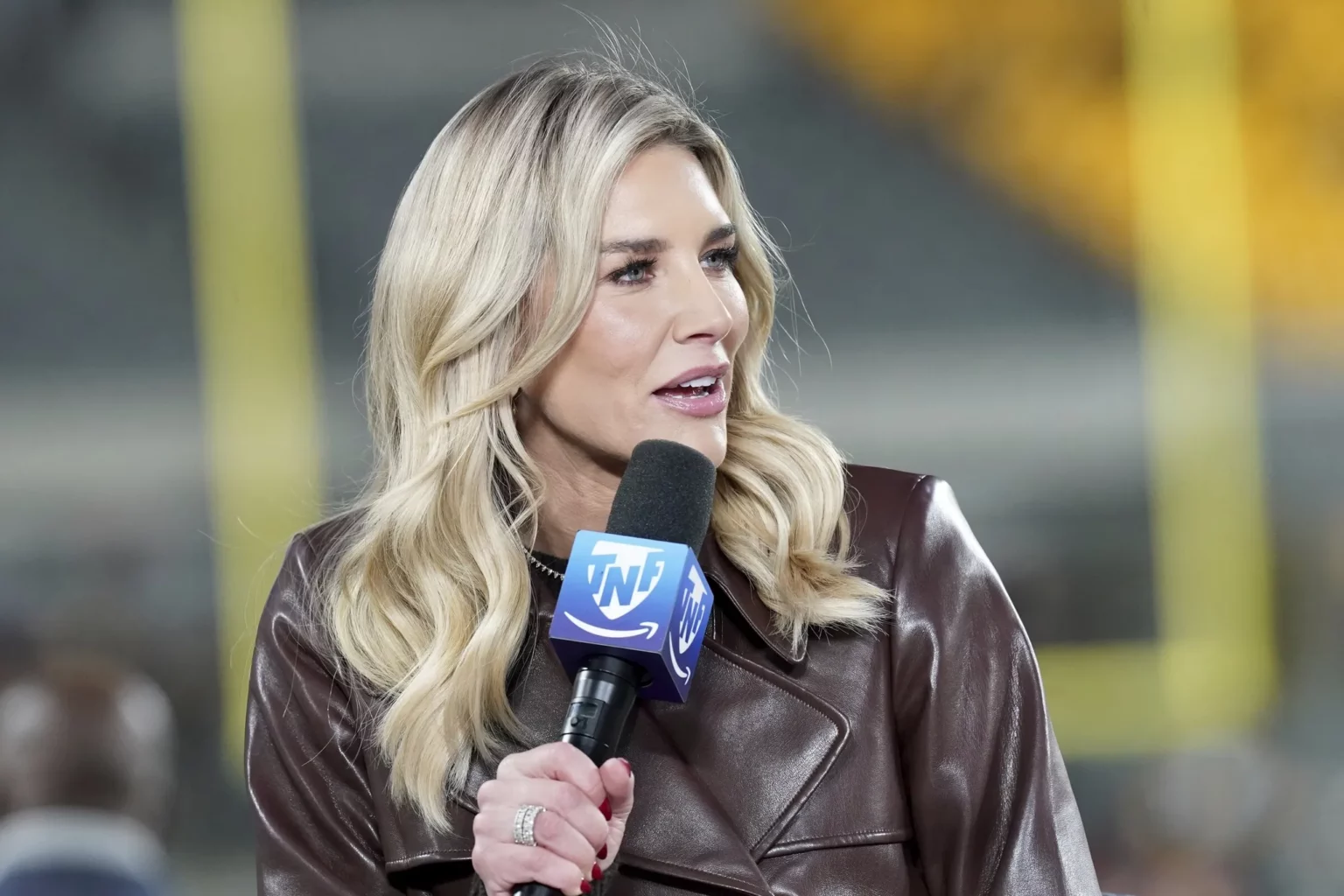Renowned NFL broadcaster Charissa Thompson has sparked controversy by acknowledging that she fabricated stories during her early years as a sideline reporter. The admission, made on a recent podcast, has elicited criticism from both sports media professionals and fans, raising questions about journalistic integrity and ethical standards in the field.
During an interview on Barstool Sports’ Pardon My Take podcast, Thompson candidly confessed, “I would make up the report sometimes.” The revelation, including instances where she would resort to using cliches to avoid inaccuracies, has led to a heated response from various quarters.
In response to the backlash, Thompson issued an apology on Instagram, clarifying that she had “never lied” and attributing the controversy to a poor choice of words. She expressed regret, acknowledging the importance of words and the impact they can have on her credibility as a sports broadcaster.
Challenges of Live Broadcasts and Sideline Reporting:
Thompson shed light on the challenges faced during live broadcasts, particularly when coaches did not provide timely information. She explained, “In the absence of a coach providing any information that could further my report, I would use information that I learned and saw during the first half.” Sideline reporters in American football broadcasts are pivotal for providing real-time insights from the field.
The admission drew criticism from within the industry, with Fox Sports coworker Laura Okmin emphasizing the trust-building process with coaches and calling out Thompson’s actions as a disregard for the privilege of the sideline role. ESPN college football reporter Molly McGrath cautioned young journalists, labeling Thompson’s behavior as “not normal or ethical” and highlighting the potential consequences for losing trust and credibility with coaches and players.
ESPN’s Morgan Uber criticized Thompson’s remarks for perpetuating stereotypes about women in the profession, noting that good sideline reporters prioritize thorough research, communication with players and coaches, and refrain from fabricating reports.
The BBC reached out to Fox Sports and Amazon Prime, Thompson’s current employers, for comments on the controversy. As of now, neither company has provided an official response.
Charissa Thompson’s admission has ignited a broader conversation about the responsibilities of sports broadcasters, ethical journalism, and the potential consequences of compromising trust with the audience and industry stakeholders. The controversy serves as a reminder of the importance of transparency and accuracy in media reporting, particularly in high-profile sports broadcasting roles.




